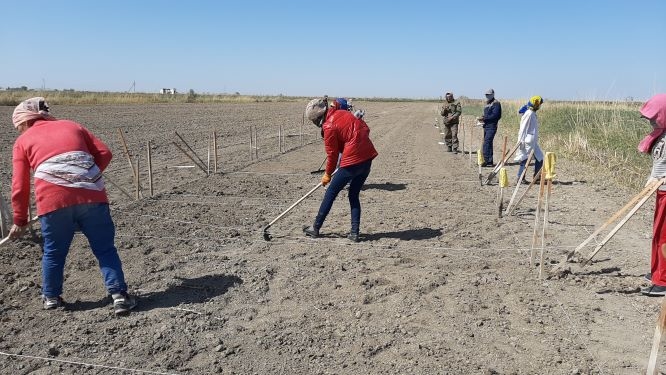
As it is known, Kyzylorda region is the main rice-growing region of the country. Today, it is planned to plant rice crops on an area of 88. 241 ha. Diversification of the agricultural sector in the region is an objective necessity, since the main obstacle to a further increase in the volume of rice is the limited water resources. There is enough land, but there is a lack of water, so it is necessary to stabilize the rice crop by 80.0-85.0 thousand ha and increase the yield by 20-25% due to the increase in yield per hectare.
Scientists of the Regional Department of Agriculture and the Kazakh Research Institute of Rice production named after I. Zhakhayev proposed reducing the area under rice by 2400 hectares in order to increase labor productivity taking into account water scarcity, as well as to plant more efficient crops. In accordance with the soil and climatic conditions of each district, it is possible to sow alfalfa, potatoes, grains, oilseeds and vegetables in a crop rotation with rice with scientific support from scientists of the Institute.
For example, if the soil and climatic conditions of the Shieli and Zhanakorgan districts are favorable for increasing the volume of vegetable and potato crops, then for the Zhalagash and Syrdarya districts, an increase in the volume of granulated sugar is possible, and for the Kazalinsk and Karmakshy districts, peas, granulated sugar, and corn.
Spring sowing is in full swing at the research and production site of the Kazakh Research Institute of Rice production named after I. Zhakhaev. To date, wheat has been sown on an area of 70 hectares, in addition, 30 hectares of winter wheat has been sown. In the near future, 200 hectares of alfalfa will be sown with barley, wheat, oats and safflower. In general, this year the Research Institute plans to sow 630 hectares of rice (the volume may decrease due to lack of water), barley - 20 hectares, safflower - 40 hectares, oats - 5 hectares, sorghum - 80 hectares and 300 hectares of alfalfa.


